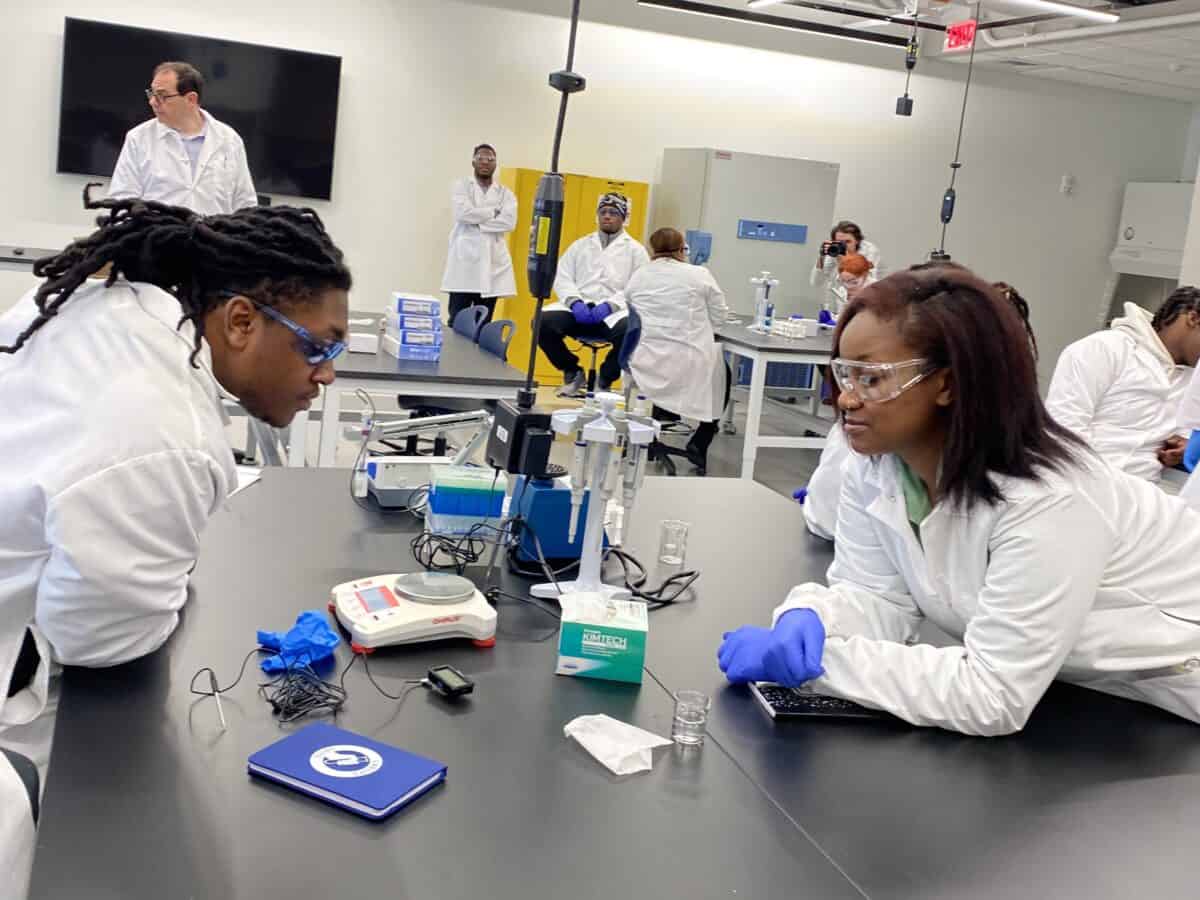
I recently enjoyed touring the Bioversity training center in Dorchester and saw the first Biotech Career Foundations course in action. I left feeling extremely impressed and proud of what has been achieved in this cutting-edge facility, the industry-informed curriculum by the Massachusetts College of Pharmacy and Health Sciences, and the amazing cohort of learners enrolled. It’s hard to argue that this could improve the diversity of talent entering our industry – 94% of the Bioversity learners “only” have a high school degree or some college, 100% identify as African American or Hispanic, and 80% are from Boston neighborhoods like Dorchester. We want our industry to reflect the broader population better. This feels like another step toward that.
However, the potential access Bioversity and other workforce development programs are creating for “non-traditional” talent to enter the workforce must be paired with an equally deliberate effort to proactively support each individual to make them want to stay in the workforce. Employers will need to ensure their onboarding and retention strategies effectively instill a true sense of belonging for all, especially for those who have been traditionally underrepresented in our industry locally. It’s worth pointing out that our 2023 DEI report found that only 14% of the biopharma workforce identifies as BIPOC (Black and Indigenous People of Color), with this number dropping to just 6% when considering the percentage of people of color at the executive level.
Some approaches employers have chosen to implement:
- Assigning a mentor or “buddy” from outside the new employee’s business unit to help welcome them into the company and answer questions in a safe space
- Providing flexibility and the time and opportunity for employees to become accustomed to any unfamiliar professional or cultural expectations
- Helping staff and managers understand unconscious bias principles, allowing employees to be viewed holistically and not just through one lens. e.g. race
- Creating the conditions in which the employee actively wants to showcase their presence in the company, not using them as examples in marketing materials
- Supplying compensation linked to their responsibilities, not their newness to the industry
- Focusing on their talent, not their difference
Initiatives and institutions working to increase diversity face increased scrutiny alongside broader attacks on DEI. Within this context, I was recently asked, “Do you think the graduates of programs like Bioversity are going to feel wanted in your industry and Corporate America more broadly?” We have the opportunity to ensure the answer is yes.

Reach out to inclusion@massbio.org for a conversation around your retention plans and to learn more about the Bioversity initiative visit www.bioversityma.org.
Tom Browne is MassBio’s lead for DEI consultancy, focused on corporate operations and culture. He specializes in employee well-being and retention, supplier diversity, and DEI program marketing.